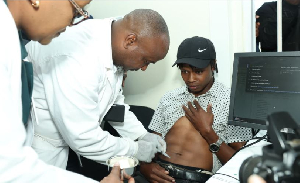A new Health Project dubbed “Maternal and Baby Friendly Facility Initiative” has been launched in Bolgatanga in the Upper East Region to help reduce maternal and newborn deaths.
The two year Project, funded by the Bill and Melinda Gates Foundation, is expected to end in 2017. It is being implemented by the Ghana Health Service (GHS) in Bolgatanga, Bongo, Bawku Municipal and Kassena-Nankana West Districts, in the Region.
Dr Joseph Opare Larbi, Regional Deputy Director in charge of Public Health, at the launch of the project, explained that, the new project falls in line with the GHS new born strategy.
Dr Larbi expressed regrets that in the year 2014, the Region recoded 47 institutional maternal deaths and the year under review, 2015, had recorded 27 so far.
The project he said, would focus more on quality health service delivery to pregnant women, mothers and the newborn babies and also help address the maternal mortality and newborn deaths.
He said the region recorded supervised delivery of 74 per cent in 2014, and impressed upon all stakeholders to ensure that pregnant women delivered at health facilities rather than at home.
Ms Rofina Asuru, the Regional Public Health Nurse, said the project would also focus on improving leadership, policies and partnerships, as well as that of facilities based on optimal care for mothers and newborns, including breastfeeding and support services among others.
“The project will involve community members as the major stakeholders and would have their capacities built to demand access to quality maternal, newborn and community childcare services, including breastfeeding constantly and support services”, she hinted.
Dr Imran Ravji, Human and Health Nutritionist Specialist of UNICEF, expressed unhappiness about the spate of newborn deaths in the country, and mentioned that about 75 per cent of the causes were preventable.
He called for institutional collaboration of all stakeholders with the GHS to help confront the issue, noting that, the project could be extended to the non-beneficiary districts depending on the implementation and the impact it would make on the communities.
Health News of Monday, 14 December 2015
Source: GNA












